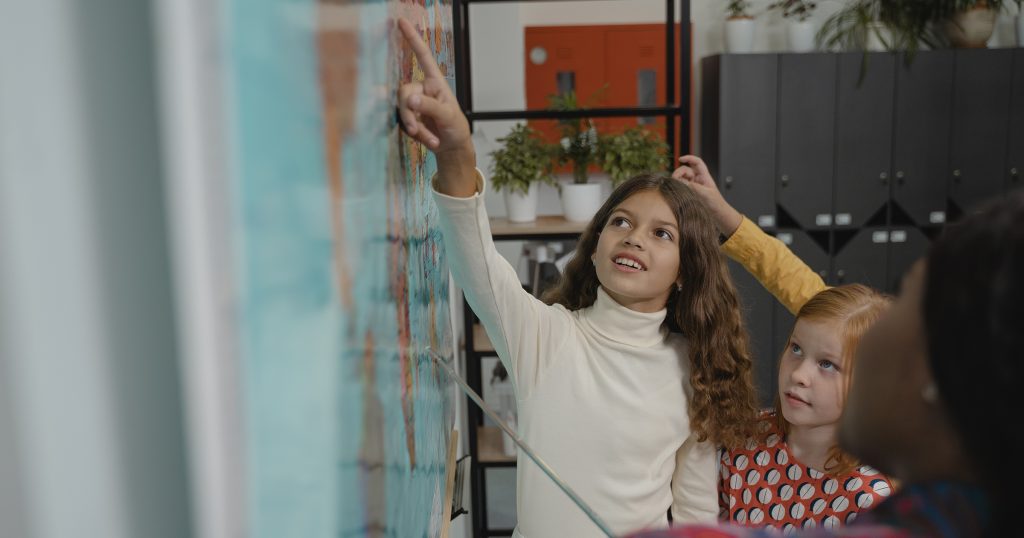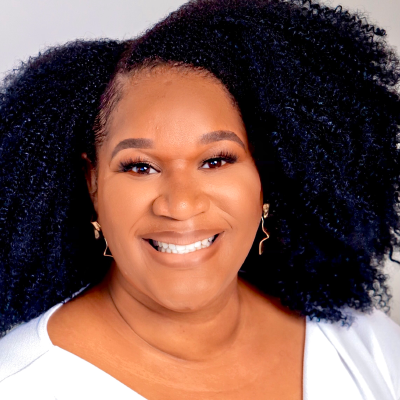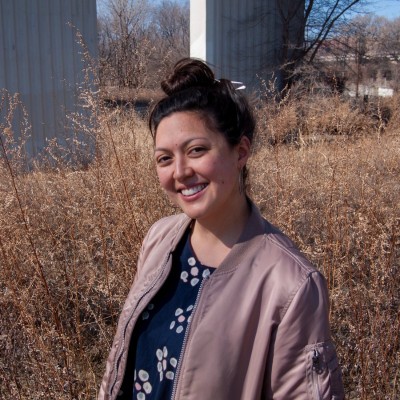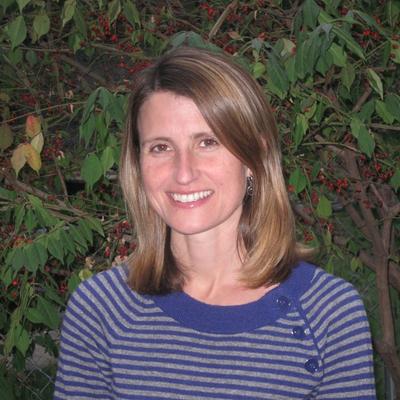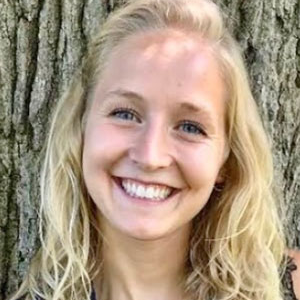On November 15, the newly-revised draft of the Minnesota K-12 Social Studies Academic Standards were released, kicking off the multi-step administrative law process ahead of their adoption.
A public comment period on rulemaking for the standards is now open until January 14, 2022. In addition to the rulemaking process, MDE opened public comment on the benchmarks, with a December 14 submission deadline.
As a member of the social studies standards review committee, I’ve spent the past year in deep connection with our stakeholders. I’ve spoken to students, educators, administrators, families, and community members to inform the committee revisions.
I recently sat down with four licensed social studies teachers to talk about the latest draft of the social studies standards, and to understand what this change will mean for the future of K-12 social studies.
Here’s what they had to say.
On the importance of a good social studies education
Dr. Courtney Bell-Duncan, Assistant Professor, Social Studies Educator, and Founder & CEO of Courtney S. Bell Consulting
“When [social studies is] taught within a culturally responsive and morally conscious framework, it can change a young person’s life. I know this because it changed mine. It helped me to better understand the society and world I live in, and what I could do to enact change.”
Sarah Garton, Upper Adolescent Social Studies Guide, Great River School
“It is about how to be a citizen of the world, as well as all the other communities that we’re a part of. It’s about learning how humanity has come to where we are now. It gives students the opportunity to study who they are, who their people are, and who they can be in the world.”
Carrie Bakken, Teacher, Avalon School
“Because it impacts our lives; [where we’ve been], how we got here, and how we move forward. There seems to be surface level understandings of the U.S. Constitution and the Bill of Rights. Both are used to justify certain behaviors, and it’s important to engage in dialogue around our government.”
Maddie Rainey, 7-10 Social Studies Teacher, Spring Grove Public Schools
“The essence of social studies is to use what we learn, apply it to our everyday lives, the ways we interact with others, and to move forward and create something better. It’s also about building empathy, seeing the world through the eyes of others. It’s about learning the daily impact on our environment, whether it’s family, community, city, state, nation, hemisphere, world, or universe.”
What critics of the standards should consider
The revised standards have become a hot topic with the addition of a new strand of standards for ethnic studies. Many celebrate this unprecedented inclusion, seeing an opportunity to narrow Minnesota’s infamous academic disparities, as well as enhance the academic experience of all Minnesota children. Others see it as a threat to their way of life and ways of knowing, complaining the changes are steeped in a concept called critical race theory.
I asked teachers what they would say to those critics.
Bell-Duncan: The very things that they love the most about their own social studies education experience; their pride in the history they’ve learned, and the American patriotism taught in social studies… that is the same level of pride and belonging that every child should feel when they learn.
Garton: I would ask why they are opposed, what feelings come up, and why. The addition of ethnic studies [standards] is about reflecting and mirroring the community we live in. What would make you opposed to that?
—Marcus Garvey
Bakken: I’d be curious about the “why.” Why would more inclusivity, learning more, and healing be worrisome? Even though none of us were here when this started in the 1600s, we have to acknowledge it. We have to acknowledge the trauma. A white child knows they are not responsible for slavery and the history of hate in this country.
Rainey: We are looking at the voices that were either lost, silenced, or ignored. It is a more inclusive version of how we tell our history. Historically, whenever there is change, it can be difficult but it’s our responsibility to advance these efforts. It’s past time to examine an understanding that things are systemic and structural. We have to recognize and respond to the uncomfortable truths.
What excites educators about the standards—and what concerns them
Bell-Duncan: What we learn and teach is what will help K-12 scholars to not only survive, but thrive in the world. This requires a well rounded education. I am worried about the erroneous information blasted in the media and all over the country. It’s the fear mongering creating and fueling this sensationalism. It is human nature to fear what you don’t know. But given our state’s academic disparities, we can no longer afford to continue to be stagnant as a state.
Garton: I’m co-teaching an ethnic studies class, with a focus on the histories of schooling. I’m excited because I could go a lot of different directions and still meet the state standards. Some teachers will need support on how to hit [new] benchmarks and how to teach ethnic studies.
Bakken: The [latest] draft is more explicit and inclusive than any previous social studies standards. It will help people who haven’t been as supported in this area to be more inclusive. I do wonder how it all fits and integrates with everything else.
Rainey: Minnesota’s American Indian tribes and communities were integrated into each strand of the standards. The ethnic studies strand, while impressive, will be a challenge to implement. If teachers are not well versed in Native American culture or history, we could do [our students] a disservice. The standards include more voices, so we’ll need to hear from the people who know the stories and who hold that history. We may need extra training to incorporate these [standards] into our classrooms.
Social studies and patriotism
Merriam Webster defines patriot as “one who loves and supports his or her country,” and has anthologized its historical use in the quest for freedom and liberation across the world, showing that it held both derogatory and superlative meanings.
Some believe that the current way social studies is taught is more about indoctrinating white students and subjugating Black, Indigenous, and students of color, while others believe the new standards will have the opposite effect.
—Jose Rizal
I asked each teacher about the role social studies have in building patriots of this country:
Bell-Duncan: If you’re going to be a patriot you have to know the full story [from the beginning]. But if you’re not a part of the stories that are told, how would you see yourself as a part of the country? How could you defend something that you don’t feel a part of? You dissociate yourself from it. Every person deserves to be affirmed in their education, and that their thoughts and experiences matter. That is only possible by bringing forth multiple experiences and perspectives. There has to be an intentional and consistent act of inclusion.
Garton: The standards, namely ethnic studies, are asking students to be critical thinkers of the world around them. [Students] will make our democracy stronger and create opportunities for us to be reflective about the world, engaged and empowered to make change — from a place of knowing themselves, where their family is from, and where they’re from. Being a patriot means you should care about our country and be connected to community.
Bakken: The word patriot is complicated, because the term was designed to support war. But if Frederick Douglas, a Black man born into slavery and subjugated to [at the time] legally deplorable acts, can feel good about the potential of and hope for this country, then I can, too.
Rainey: The education system as a whole, not just social studies, should be providing students with a sense of belonging. They should feel safe in schools. I think of planetary citizens, more than the idea of a patriot, where we could have a sense of belonging and a sense of pride. The biggest challenges we face today are beyond the borders of a nation. We need to look at transnational organizations and connections that we see around the world.
What’s needed ahead of implementation
A great deal of intention went into the development of these standards. Their implementation will be just as important to get right. In my final question to teachers, I asked how they might implement these new standards. I wanted to get a sense of how they might see social studies teachers adapting to the change, both where they may struggle and where they may thrive.
Bell-Duncan: If we are going to get the best out of the learners in Minnesota schools, we have to put them first and we have to put them front and center. My work has focused on how to teach marginalized histories to scholars. I consult with schools and districts to help develop their ethnic studies classes, as well as coach teachers and school staff. As for others, I ask: What are you prepared to do? If you can’t or don’t want to, don’t get in the way. Step aside and make way for those who will.
Garton: MDE has to commit to this for the long haul. [Implementing the new] benchmarks will require professional development support from places like Education Minnesota or other teacher preparation organizations, and teachers already in the classroom. [There needs to be] funding to MDE and organizations like Education for Liberation for new training.
Bakken: MDE could start by showing pride in the new set of standards that are more just and inclusive. What story will MDE tell about the standards and the process? Is there a way for MDE to use resources to inspire teachers to be a part of progress and teach social studies differently? They could also take the political heat away from districts and absorb more of the opposition’s ire by steadfastly supporting the standards, implementation, and resources. MDE could also offer high-quality, vetted professional development on various topics related to the grade level standards. They could incentivize teacher collaboration and sharing resources.
Rainey: I hope that teacher prep institutions will be some of our leaders. I’d love to get involved and hear from other educators, if there’s any type of professional learning day or conferences. I’d love to collaborate with innovative teachers who have already incorporated these in their classrooms. I would love to listen to people who know more than me. [I look forward to] my students analyzing sources and text information and get to the bottom of the multiple stories that could be told about an event. These issues aren’t specific to Minnesota, although the standards are specific to our state. A big challenge of social studies is thinking about empathy and about having to care about people who are experiencing things other than you and the way people live in this country would live a very different lifestyle than somebody here. You have to have empathy for yourself first.
If you’d like to give public comment on the standards and benchmarks, or would like more information on the latest draft, visit www.education.mn.gov/mde/dse/stds/soc.
